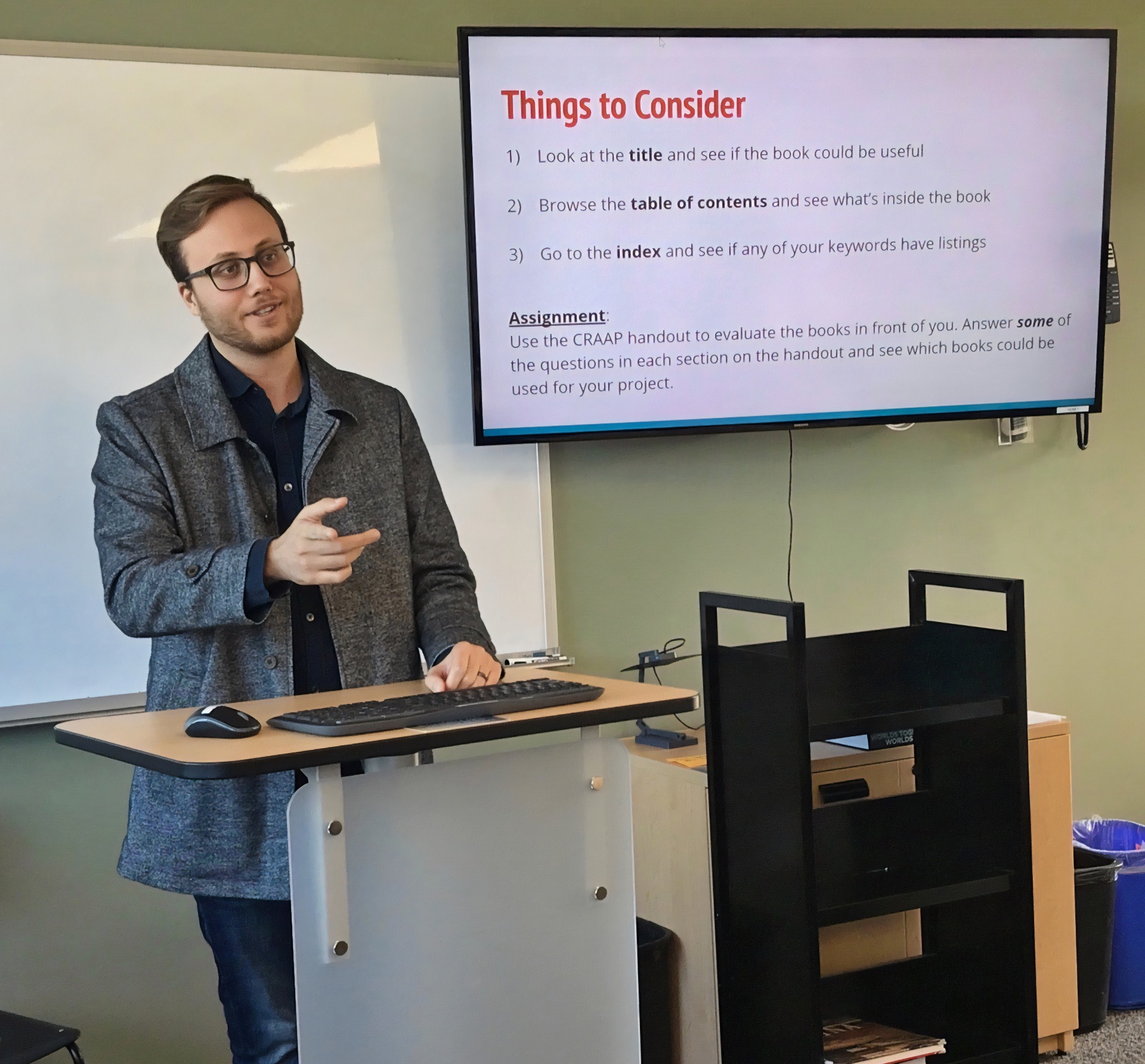Teaching
Literature, Writing, and Information Literacy
Teaching Philosophy
I have worked in a university setting as well as at special, school, and public libraries. At each institution I have worked collaboratively with students and faculty to curate cross-disciplinary materials that are culturally relevant to classroom learning and individual student interests. These
experiences have taught me the importance of decision-making and assessment skills, but also the value of being flexible
with approaches to information literacy instruction. I believe that in order to form a congenial relationship between the
library and our communities, we must remain patient, understanding, and inclusive-all while asking critical questions of
our pedagogical goals and learning techniques.

My pedagogy is focused on experimentation and providing a space in which students may take risks. I believe that learning flourishes when students feel that they can be expressive, compare cultures, and learn from the differences. But how do we get students to start talking about tough subjects? I think the best way to start is by telling stories. When we no longer see learning as a discipline, but rather as a reflection of life, it gets easier to talk about.
When considering the current job market, I believe that many employers value analytic minds. Students who can think judiciously will undoubtedly be successful in life, which is why my main instructional goal is to teach critical thinking. This can be a difficult task, especially considering that literature survey courses are often filled with students from a variety of disciplines and backgrounds. In order to bridge the traditional divide between STEM and the Humanities, I use data tools to demonstrate the relationship between analysis and close reading. Technology helps us interrogate the ways regional, hemispheric and global trends shape, and are shaped by, individual cultural expressions. By allowing students the opportunity to use different formulas for success, they unsurprisingly become successful.
This is because the communities we serve are rich and full of unique voices. Their lived experiences and educational needs cannot be reduced to a single practice. It follows, then, that our instructional methods should reflect this diversity. This often means tailoring instruction to the individual level. By considering students and their needs for different styles of learning, we take a simple step towards creating greater classroom inclusivity.
UCLA Teaching Assistant Positions
Introduction to Buddhism and Buddhist Literature
UCLA Department of Asian Languages and Cultures
Spring 2020
Resistance Literature: Works from The Middle East
UCLA Department of Comparative Literature
Winter 2020
Literature from the Age of Enlightenment to the 20th Century
UCLA Department of Comparative Literature
Fall 2019
Great Books from the World at Large: Colonial Structures
UCLA Academic Advancement Program
Summer 2019
Literature from the Middle Ages to the 17th Century
UCLA Department of Comparative Literature
Spring 2019
Literature from Antiquity to the Middle Ages
UCLA Department of Comparative Literature
Winter 2019
Social Media and Storytelling: Comparing Cultures
UCLA Department of Comparative Literature
Fall 2018
.
